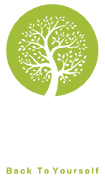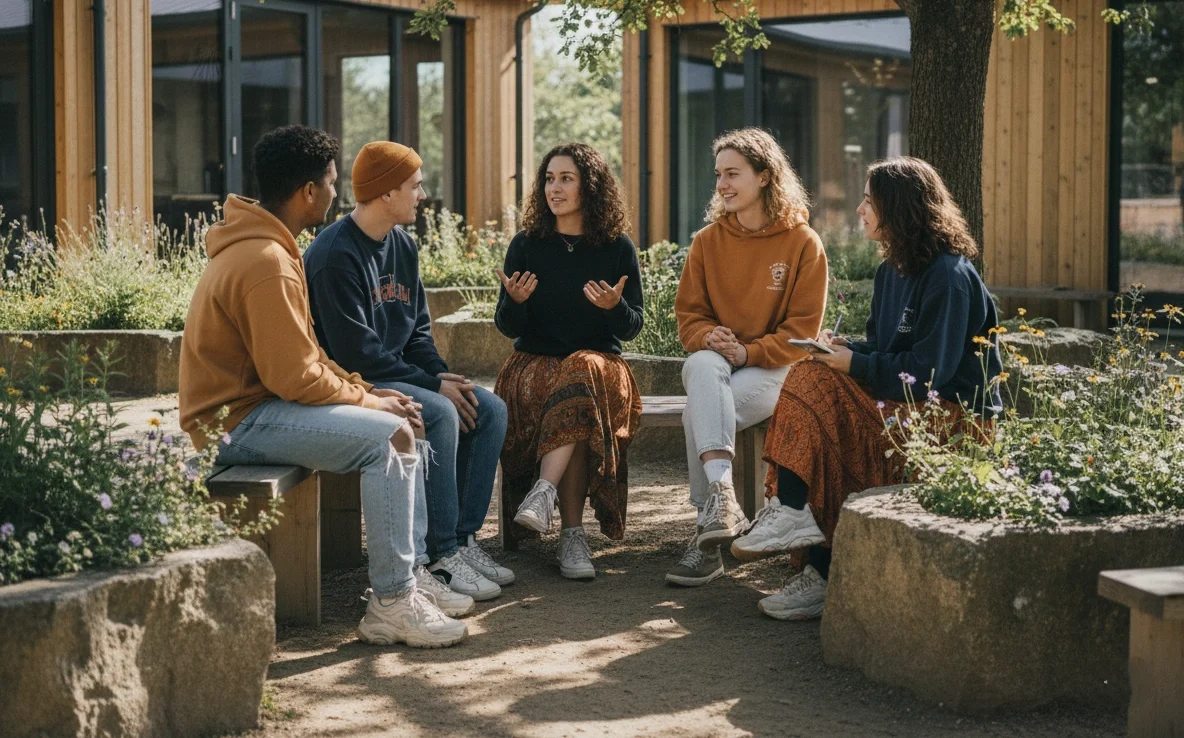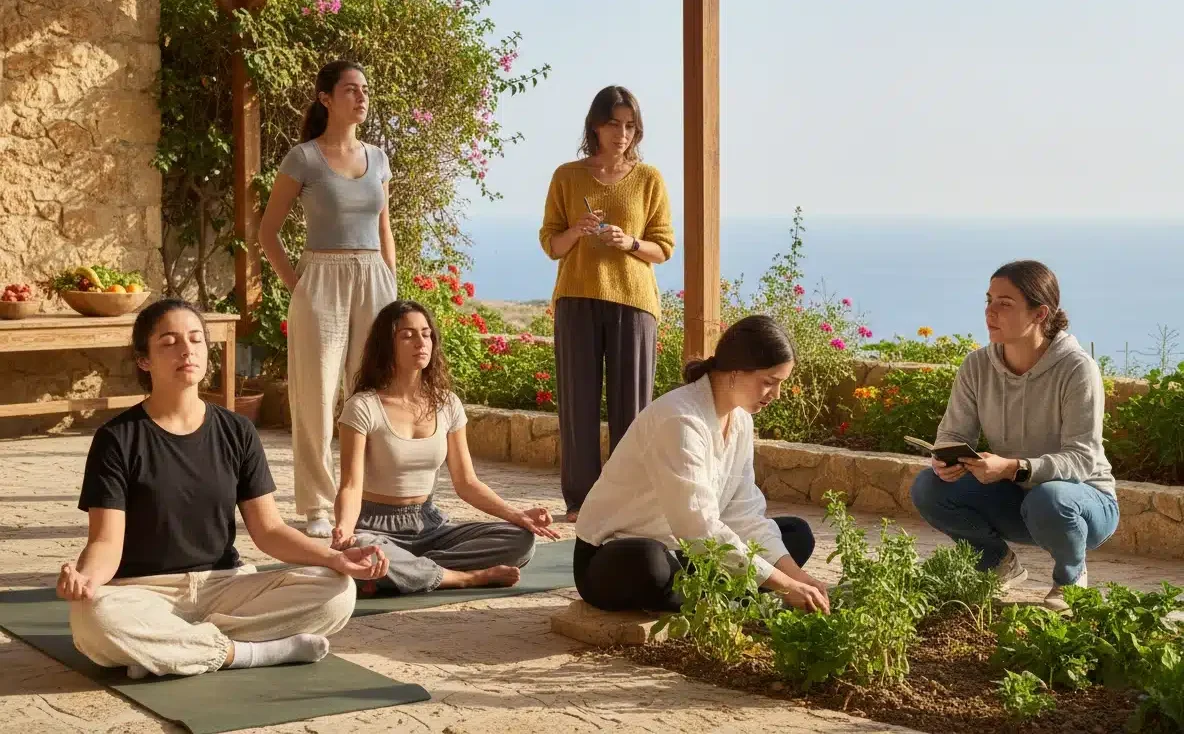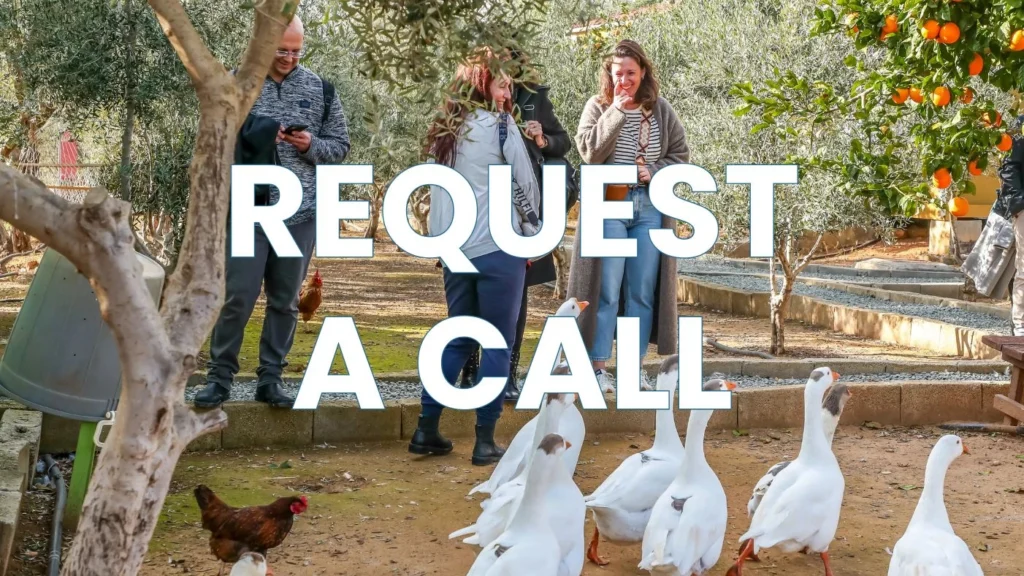What Trauma-Informed Recovery Looks Like for Ages 16–25
05 min read
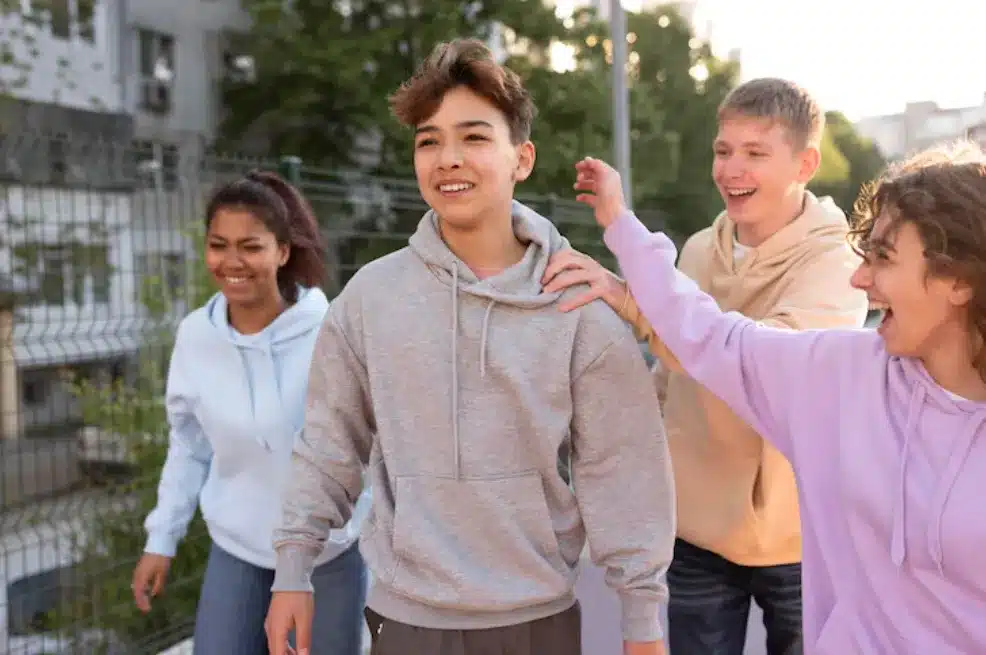
Introduction
For many young people aged 16–25, addiction and emotional struggles are symptoms of something deeper: trauma. Unresolved trauma—whether from family dynamics, bullying, loss, or neglect—can disrupt development, self-worth, and trust in others. That’s why healing must go beyond surface-level symptoms.
At Holina Village in Cyprus, we approach recovery through a trauma-informed lens. This means every aspect of care—from therapy to daily routines—is designed with safety, empathy, and emotional regulation in mind. It’s not about “fixing” the individual. It’s about creating the conditions where healing becomes possible.
This article explores what trauma-informed recovery really means and how it empowers young people aged 16–25 to reclaim their lives.

Understanding Trauma in Young People
Trauma isn’t just what happens—it’s how the nervous system responds when something overwhelms a young person’s ability to cope. Trauma in adolescence and young adulthood can result from:
Physical or emotional neglect
Emotional abuse or invalidation
Bullying, harassment, or peer rejection
Parental addiction or mental illness
Divorce, abandonment, or death
Unstable housing or chronic stress
When left unprocessed, trauma often leads to coping behaviours like substance use, self-harm, emotional shutdown, or perfectionism. Recovery means addressing the root, not just the symptoms.

What Is Trauma-Informed Recovery?
Trauma-informed recovery shifts the question from “What’s wrong with you?” to “What happened to you?”
Key principles include:
Safety: Creating an environment that feels physically and emotionally safe
Choice: Offering young people autonomy and participation in their healing
Trustworthiness: Consistent, clear boundaries and respectful communication
Empowerment: Focusing on strengths and resilience—not just problems
Peer support: Community with others who understand without judgement
This approach removes shame, rebuilds self-trust, and lays the foundation for lasting change.
How Holina Cyprus Delivers Trauma-Informed Care
At Holina Cyprus, trauma-informed recovery is embedded in every level of our programme:
Trained clinical and therapeutic staff skilled in EMDR, Internal Family Systems (IFS), and somatic therapy
Multilingual team with sensitivity to cultural and identity-based trauma
Small group sizes to ensure personalised attention and emotional safety
Non-judgemental environment where every emotion is welcome and respected
Daily routines that reduce anxiety and build a sense of control
Rather than pushing young people to “get better,” we co-create a pace of healing that honours their capacity and choices.

The Role of Holistic Therapies in Trauma Recovery
Trauma isn’t just remembered—it’s stored in the body. That’s why Holina combines talk therapy with holistic modalities that access deeper layers of healing:
Yoga and breathwork for nervous system regulation
Sound healing to reduce emotional reactivity
Expressive arts to release suppressed emotions
Nature therapy and grounding techniques
Bodywork and mindfulness for reconnection with self
These methods gently help young people process trauma without needing to relive it.
📌 Related: Holina’s Therapy Model →
The Cyprus Setting: A Calm Space for Complex Healing
Recovering from trauma requires the right environment. At Holina Cyprus, young people find:
Tranquil seaside surroundings to reduce hypervigilance
A supportive peer community without pressure or comparison
Private and shared rooms designed for comfort and rest
Gentle daily schedules that avoid overwhelm
Opportunities for spiritual exploration and self-reflection
Our island setting fosters peace—not pressure. That’s what trauma survivors need most.
What Makes Holina’s Trauma Care Unique
Trauma-Informed Leadership
Every team member, from counsellors to chefs, is trained to respond gently and respectfully to emotional distress. Trauma sensitivity is embedded in our culture—not just our therapy.Flexible Healing Paths
Young people are never pushed into group sharing or emotional exposure before they’re ready. From silent meditation to creative expression, we offer diverse routes into recovery.Integration of Science and Soul
We balance leading-edge clinical tools (like EMDR) with spiritual practices that build meaning and connection. This dual focus allows for whole-person healing.Continuity of Care
Our staff build long-term relationships. The same case managers and therapists accompany each client through detox, recovery, and aftercare—creating
trust and consistency.
Final Thoughts
Trauma-informed care is not a trend—it’s a necessity. For young people aged 16–25, recovery can’t be forced, rushed, or standardised. It must be compassionate, flexible, and grounded in understanding.
At Holina Cyprus, we don’t just help young people recover—we help them feel safe enough to begin.
FAQs
What does trauma-informed care mean at Holina?
It means all treatment is designed with emotional safety, consent, and compassion at the centre—so young people can heal without shame or pressure.
Can trauma really cause addiction?
Yes. Many young people use substances or behaviours to escape emotional pain caused by unresolved trauma.
Do I have to talk about my trauma?
Only if and when you’re ready. Holina offers non-verbal healing options like bodywork, art, and mindfulness.
Is this programme only for trauma survivors?
Not at all. Many guests come for burnout, anxiety, or addiction—and discover trauma was underneath. We meet each person where they are.
How is this different from traditional therapy?
Traditional therapy often focuses only on thoughts or behaviours. Trauma-informed care includes the nervous system, emotions, and body-based healing.
Will I be safe sharing my story?
Yes. We create a confidential, respectful space—never forcing disclosure. You choose what, when, and how to share.
What’s the staff’s training in trauma?
Our therapists are trained in EMDR, IFS, somatic practices, and other trauma-specific modalities. All staff receive ongoing trauma-informed care training.
What if I don’t know if I’ve experienced trauma?
That’s okay. You don’t need a label to receive care. Many forms of emotional pain are valid—even without a dramatic “event.”
Is Holina suitable for people with PTSD?
Yes. We support many young people with PTSD symptoms, using methods that avoid retraumatisation and promote emotional stability.
How do I apply?
Contact us for a private consultation:
📧 info@holinacyprus.com
📱 +66 (0) 62641-8369
🌐 www.holinacyprus.com
